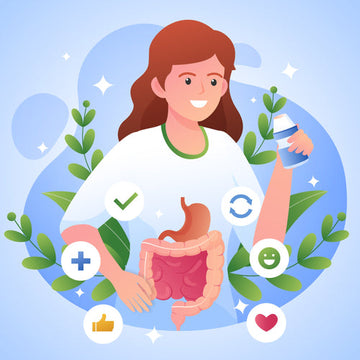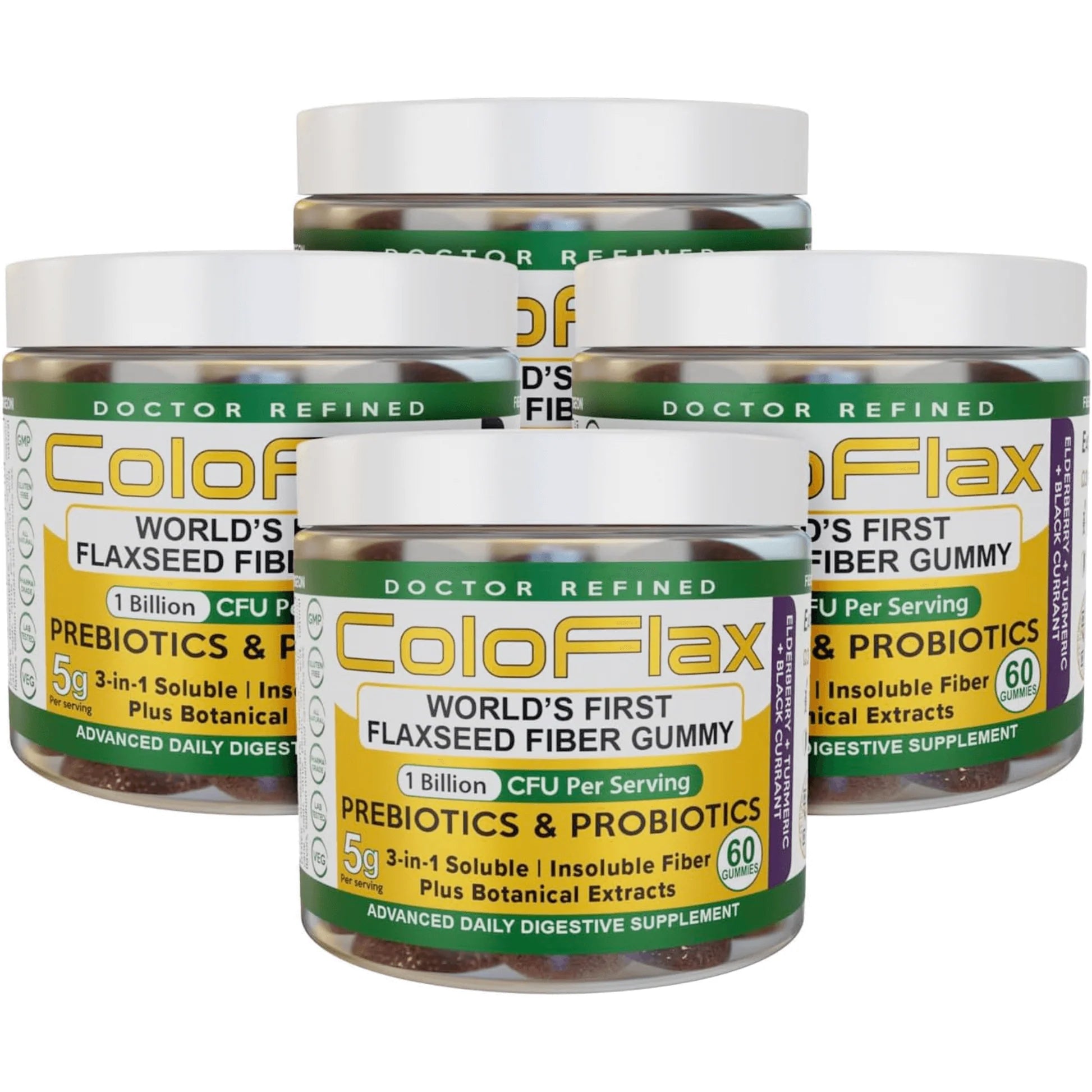Elderberries come from the European elder tree and have a long history of use in the treatment of colds, flu, and an array of other conditions. As with many other herbal remedies, they have not been approved to treat any condition, but there is a wealth of anecdotal and scientific evidence that points toward an array of benefits.
In this guide, it’s those benefits that we’ll look at.
What are the Health Benefits of Elderberries?
The Greek doctor Hippocrates, often referred to as the “father of modern medicine”, called elderberries his “medicine chest”, as he believed that they had many medicinal properties. The Greeks weren’t the first to use these berries, though, as they were also used by the Egyptians before them.
The deep purple berries are rich in compounds known as polyphenols and anthocyanins, the latter of which give the berries their color.
Here are some of the potential health benefits of elderberries, according to scientific research.
They are a Great Source of Antioxidants
Elderberries are high in phenolic acids and flavonoids, compounds that have an antioxidant effect.
Your body produces free radicals during normal metabolism and these can cause oxidative stress, which has been linked to a number of chronic conditions. Antioxidants help to combat these free radicals and could therefore play a role in disease prevention.(1)
Antioxidants are one of the reasons that a diet rich in fresh fruits and vegetables can help you to live longer, as these foods are loaded with antioxidants.
One of the most interesting groups of compounds found in elderberries is something known as anthocyanins. In addition to giving the berries their color, anthocyanins provide many protective effects and are several times more potent than vitamin E, another common antioxidant.(2)
Other studies on these berries suggest they are some of the most potent antioxidants around, giving you plenty of reasons to add them to your diet.(3)
They Could Help with the Symptoms of Cold and Flu
Some of the longest-running uses of elderberries concern their apparent ability to reduce the symptoms of cold and flu.
Typically, you have to take these claims with a grain of salt. There are no known cures for the common cold or influenza, and many of the “treatments” out there are little more than placebos based on misconceptions and old wives’ tales.
However, there could be some truth to the claims that elderberry can help with colds and flu. One study, published in 2017, noted that extracts of elderberry possess “antiviral and antimicrobial properties”. Combined with the fact elderberries are “generally recognized as safe”, it means they could be used as a complementary medicine. (4)
Another study found that elderberry extracts could reduce the severity of influenza symptoms when taken orally.(5)
The study looked at 60 patients aged between 18 and 54, all of whom were presenting with influenza symptoms. They gave half of the participants a dose of elderberry syrup 4 times a day while the other half received a placebo.
After 5 days, researchers noted that the elderberry group was less likely to use other cold and flu medications and experienced relief from their symptoms earlier than the placebo group. It concluded that elderberry could provide an “efficient, safe and cost-effective treatment for influenza”.
They Could Support Cardiovascular Health
Diets that are rich in flavonoids are known to reduce the risk factors of heart disease, and there have been numerous positive studies on the specific flavonoids found in elderberries.
A meta-analysis published in 2014 looked at the effects that flavonoids have on coronary heart disease (CVD), which is the biggest killer in the United States. It noted that anthocyanidins—a flavanol found in elderberries—and 5 other flavonoids, could “significantly decrease the risk of CVD”. (6)
Studies on rats and mice have found that elderberry extracts could reduce cholesterol levels and may also lower the concentration of uric acid in the blood, high levels of which are known to increase blood pressure and cause other negative cardiovascular outcomes.
The jury is still out on whether elderberries can consistently reduce cholesterol levels in humans, but they certainly seem to have a positive effect and more research is warranted.
They are High in Fiber
We probably sound like a stuck record when we say this, but: Americans need to eat more fiber. And we’re not the only ones saying that.
As noted in our guide to the benefits of fiber, as little as 5% of Americans are meeting the recommended daily intake of fiber, which is between 25 and 30g a day.
If that sounds like an unreachable goal, it’s probably because you’re one of the 95%, in which case elderberries can help.
In fact, elderberries are a perfect example of just how easy it is to meet those fiber requirements. A single cup of these amazing little berries contains a massive 10g of fiber, which is a third of the DV at the higher estimation.
Add a handful of raspberries, a sandwich made from whole grain bread, and a couple of apples and you’ll meet those requirements with ease.
Fiber doesn’t just make you more regular. It’s not just about making those mornings more bearable and limiting the frequency of constipation and diarrhea. It can also lower your cholesterol and improve overall colon health.
So, if you’re falling short of your DV for fiber, consider adding some elderberries to your diet. Failing that, there are plenty of other fruits and vegetables that are packed with fiber.
It Could Help to Manage Blood Sugar
Elderberries could reduce blood sugar levels, potentially helping with the treatment of diabetes, which is one of the most common conditions in the United States.(7)
Researchers found that the plant demonstrates “the presence of insulin-releasing and insulin-like activity” before suggesting that it could be used as a “possible dietary adjunct for the treatment of diabetes”. This effectively means that it can be used alongside other treatments to boost efficacy without increasing the risk of side effects.
They May Support Weight Loss
Elderberry extracts may reduce fat accumulation and could assist with weight loss when used as part of a healthy, balanced diet. The effects are likely to be minor and they don’t work like an appetite suppressant or a stimulant, but there are some anecdotal reports out there and these are backed by a handful of clinical studies.
A study on these effects noted a fat reduction of 1% in participants, a number that seems insignificant at first but becomes more notable when you consider there are no side effects, no serious risk factors, and it could also help with blood sugar and cholesterol management.(8)(9)
Are there Any Side Effects of Elderberries?
Although properly prepared elderberries can be healthy, you should refrain from eating unripe berries and avoid too many raw berries. They contain a toxic compound known as a glycoside, which is a type of cyanide.
This compound is also found in the branches, twigs, roots, seeds, and leaves of the plant, so it’s important to find a good source and ensure the berries are properly prepared.
If you ingest too much of this toxin, you may experience nausea, vomiting, and diarrhea. In extreme cases (with high doses), it can lead to very serious reactions that require immediate medical attention.
Small doses that have been prepared properly are perfectly safe, but it’s always best to err on the safe side, and that’s why we have provided this information. You should also refrain from consuming these berries if you:
- Are pregnant or breastfeeding
- Have problems with your immune system
- Feel nauseous after consuming the berries
- Suffer from breathing issues or a rash after ingesting them
Furthermore, if you have a preexisting medical condition or take a lot of medication, you should consult with your doctor before adding elderberries to your diet or supplement regime.
Other Health Benefits of Elderberries
As with many herbal remedies, there are a number of potential health benefits of elderberries. Some of these are backed by numerous anecdotal reports while others are assumed based on the berry’s vitamin and antioxidant content. There are also some clinical studies in the mix.
These other health benefits include:
- They may fight harmful bacteria in the body: The anti-bacterial effects of elderberries mean they could be used to treat certain bacteria, such as H. pylori, which causes peptic ulcers. There are better treatment options out there though, including antibiotics, which are usually the first course of treatment.
- They may support the immune system: The high vitamin C content, combined with other antioxidants, means that elderberries could support the immune system and provide some protection against viral infections. However, it does not mean that they can guarantee protection.
- They are a diuretic: Elderberries have a diuretic effect, which means they increase urination. This can be a negative and a positive depending on the individuals and any preexisting issues. For instance, it could cause issues in individuals who are already taking a diuretic but offer some relief in people who are retaining water.
- They could help to treat depression: Although we only have a few animal studies to draw upon, it has been suggested that elderberry extracts can help with the symptoms of depression.
What is the Nutritional Profile for Elderberries?
We discussed the fiber content of elderberries above, but there’s much more to these potent purple berries than that.
A single cup will give you over half of your daily vitamin C requirements. This nutrient is fairly abundant, but that doesn’t make it any less important. They also contain beta carotene, which converts to vitamin A in your body, and calcium, which is needed for healthy teeth and bones.
Summary: Adding Elderberry to Your Diet
As elderberries can be dangerous in their raw state, you can’t eat them like you do blueberries and blackberries. You can, however, purchase commercially prepared elderberry syrup or make your own by adding the berries to water and sugar, cooking, straining, and then boiling the liquid to thicken it.
If that sounds like too much work but you still want to add these berries to your diet, pick up a bottle of ColoFlax.
Elderberry is included as part of our ColoShield™ blend, along with turmeric and black currant. These antioxidant-rich ingredients aren’t even the stars of the show—that honor goes to the probiotic mix and the high soluble fiber content.
It’s a great way to support your digestive health.
References
- https://www.ncbi.nlm.nih.gov/pmc/articles/PMC3093095/
- https://www.ncbi.nlm.nih.gov/pmc/articles/PMC5613902/
- https://pubmed.ncbi.nlm.nih.gov/15612766/
- https://pubmed.ncbi.nlm.nih.gov/28198157/
- https://pubmed.ncbi.nlm.nih.gov/15080016/
- https://pubmed.ncbi.nlm.nih.gov/23953879/
- https://www.sciencedirect.com/science/article/pii/S1756464614002400
- https://pubs.acs.org/doi/10.1021/jf402838a
- https://www.thieme-connect.de/products/ejournals/abstract/10.1055/s-0030-1264931






